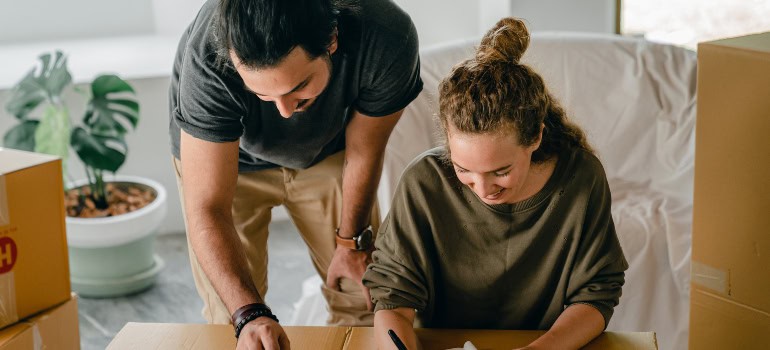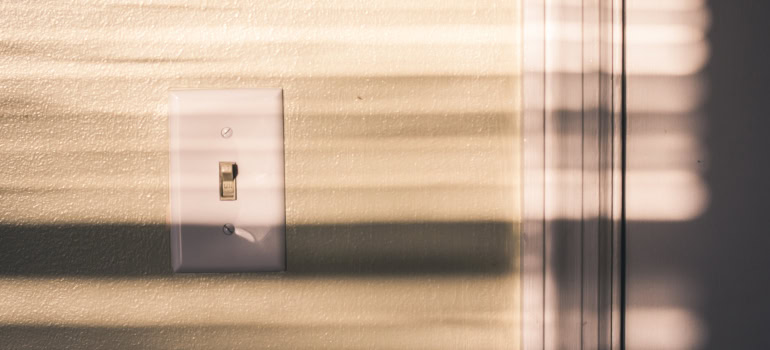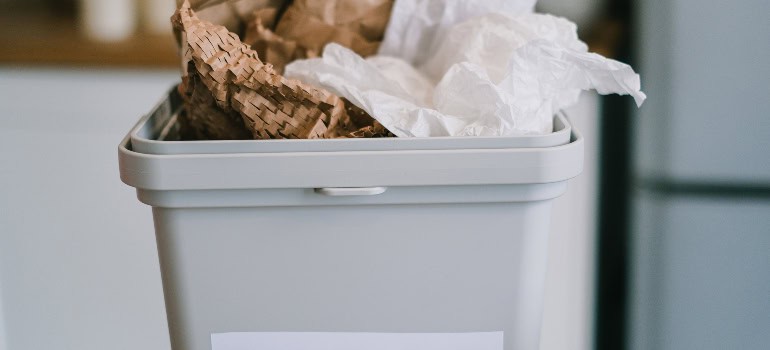Moving to a new home can be one of the most exhilarating experiences in a person’s life. It marks a fresh start, new opportunities, and a chance to make new memories. Yet, once the boxes are stacked neatly in your new house, the uncertainty starts to build. What should you do immediately after your move? To answer this big question, you’ll need to ask a few more. In doing so, you will equip yourself with vital information that aids in shaping a smooth transition, helping to mitigate the common hitches, and promoting a quick adaptation to your new environment.
Is everything here?
The first question to ask after completing your move, “Is everything accounted for?” is crucial. It sets the stage for a calm and orderly transition to your new home. As soon as you’ve arrived at your new place, conduct a thorough check to ensure all your belongings made the journey successfully. If you’ve engaged a professional moving company, such as residential movers in northern VA, they should provide an inventory list detailing all the items they’ve transported. This list serves as a helpful comparison tool to ascertain if everything has arrived, and in the correct condition. Remember, accuracy is vital. Pay close attention to detail during this process. This will provide peace of mind, allowing you to start settling into your new space confidently and stress-free.

Is everything in acceptable condition?
Now that you know your boxes and bins are in your new home, make sure nothing is broken or damaged. Whether you are doing a DIY move, using the packing service Northern Virginia companies provide, or trying a combination of the two, accidents can happen.
A bumpy road, a car swerving in front of the moving truck, or other road hazards can cause your belongings to bump together — potentially resulting in breakage.
Hence, open your boxes/bins and inspect breakable items immediately after the move is complete. One way to potentially offset the costs of replacing or repairing damaged items is to purchase insurance. Even though this coverage offers basic protection, it may not pay for all types of damage. If you choose to add this option, carefully review what’s excluded before the move.
Is everything in the right place?
Moving is much more than a simple journey from point A to point B, especially when you hire professional aid like local movers VA residents rely on. Their role extends far beyond just transporting your belongings. They are instrumental in ensuring your items not only arrive safely but also end up in their rightful places within your new home.
When the movers have carried off the last box from their truck, it’s time for you to take an active role. You might be able to shuffle around smaller boxes and bins on your own. However, dealing with bulky items and furniture is a different matter. These items are typically handled by your movers, but their proper placement within your home depends largely on your direction.
Of course, some areas are immediately identifiable, like the kitchen or the main bathroom. The stove, sink, and fridge give the kitchen away, and the main bathroom is usually easy to locate. But what about the less obvious rooms?
Your active involvement becomes important when it comes to the home office, spare bedroom, or second bathroom. Directing your movers to these spaces can save you the heavy lifting later. It’s about helping them understand where everything goes, so they wouldn’t unload everything in a central location.
So, once all the hustle and bustle of the move has subsided, take a moment to look around. Is everything in the right place? Taking the time to ensure everything is correctly positioned will set the stage for a comfortable and welcoming new home.

Is everything you need right now with you?
Packing an essentials bag is an easy way to keep what you’ll need immediately within arm’s reach. This bag could include anything from your toothbrush, towel, and shampoo to your child’s favorite toy or bed sheets.
Make sure the bag isn’t mixed in with the rest of your belongings. With all the other items the movers will bring in, it’s easy to add your essentials bag to a pile of stuff that will go, for example, to self storage Lorton VA provides. Avoid an unnecessary scavenger hunt, and place your bag in a secure location. Go through the bag and make sure everything you need is there. If not, look to your home inventory for clues as to where the items are.
Where’s the nearest hospital, pharmacy, and grocery store?
Before you proceed with further inspections, familiarize yourself with the location of essential amenities. That includes the nearest hospital, pharmacy, and grocery store. Having a clear idea of the quickest route to the nearest medical facility can prove invaluable in an emergency situation. Similarly, knowing where to find the closest pharmacy can save time and stress when an unexpected medical need arises. Grocery stores are not only essential for restocking your kitchen but are often a hub of community activity and a great way to get a sense of your new neighborhood. Use maps or local guides to locate these important places, and take a day to visit each location. Alternatively, consult the locals. After all, some of them will be part of your social circle, so why not get in contact with them immediately?

What are the local emergency numbers?
Amidst the excitement of settling into your new home, it’s easy to overlook details such as local emergency contact numbers. However, knowing these numbers is one of the ways to ensure your family’s safety. Besides the universal 911 service, your new area might have direct lines to the local police, fire department, or poison control center. Also, consider researching non-emergency numbers for these services, as well as contacts for local utilities in case of power outages or water issues. Store these numbers in a readily accessible place, and input them into all family members’ cell phones. Having these numbers at hand could make all the difference in an emergency.
What should you do immediately after your move? Check if everything in your new home works properly
If you arranged to have the utilities turned on before the move and have already had an inspection, do a final check yourself. Flick on the lights, try the heater or air conditioner, run the faucets, open the fridge, and start the stove.
If something doesn’t turn on or work correctly, start with the utility company. Verify the turn-on date and time. The utility company may turn on your electricity, gas, or water — but later in the day, on their schedule.
Along with the utilities, renters should note any pre-existing damage. Take pictures of the damage and contact the landlord or realtor immediately. Otherwise, you might be blamed and pay for it.

Are there specific rules or regulations in your new area?
Every new area comes with its own set of rules and regulations. These can sometimes be significant adjustments, especially if you’re moving from a different city or state. They can range from parking restrictions and waste disposal guidelines to more specific neighborhood rules if you’re moving into a housing complex or gated community. For instance, some neighborhoods might have quiet hours, restrictions on exterior decorations, or rules about pets. Ignorance of these rules can lead to unintentional violations and potential fines. Take the time to learn the local laws and guidelines, either through local government websites or community boards. That way you’ll ensure a respectful and peaceful coexistence with your new neighbors.

What’s the waste and recycling schedule?
It’s surprising how much trouble you’ll find yourself in if you don’t learn your new area’s waste and recycling schedule. So, what should you do immediately after your move? Even if you use the services of reputable movers such as Fairfax Transfer & Storage, you’ll still have lots of things on your plate after you relocate. You don’t want one of those things to be the piling of waste in your backyard. Different towns and cities have their own specific rules for when and how waste and recycling are collected. Some areas might separate recyclables by type, while others use a single-stream recycling system. Yard waste and bulk item pickup can also vary widely. Information on pickup schedules and rules is typically available on your local municipality’s website. Once you have this information, consider setting reminders on your phone until you’re used to the new schedule. That is how you’ll save yourself and your neighbors from the growing mess your garbage can cause.

What should you do immediately after your move? Charting your post-move course
So, what should you do immediately after your move? Ask the right questions. It is not merely an act of diligence. It’s an essential step in ensuring a seamless transition into your new home. The questions raised here are designed to guide you in getting your life up and running again, eliminating potential hurdles, and ensuring you’re not only physically but also emotionally settled in your new environment. Bear in mind that each question leads you to a path of knowledge, creating a sense of comfort and belonging in your new home. The importance of these questions is profound, offering both immediate solutions and long-term benefits. Take the time to find the answers and you will be ready to embrace the new chapter of your life and turn your new house into a home.


